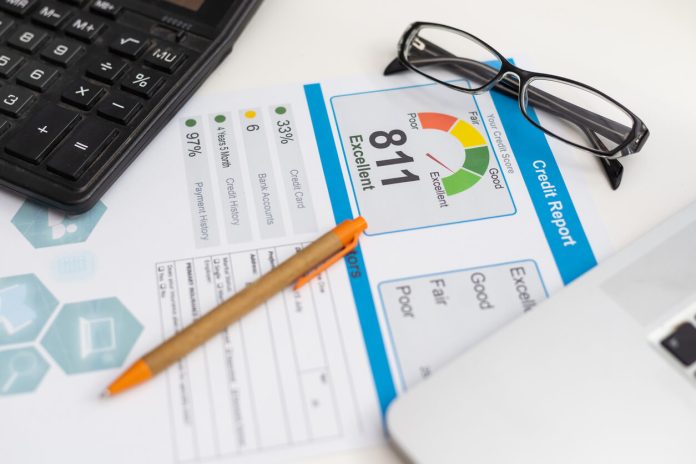Navigating the intricacies of your credit report can often seem like a daunting task. Yet, understanding this crucial document is essential to securing your financial future.
Credit reports are pivotal in determining your eligibility for loans, interest rates, and even employment opportunities. They reflect your financial history, encompassing your past and present credit activities.
Given their significance, any inaccuracies or errors in your credit report can adversely affect your financial health. This guide aims to demystify the process of reviewing your credit report, identifying potential errors, and effectively disputing them to ensure your financial integrity is accurately represented.
Recognizing the Importance of Your Credit Report
Your credit report is more than just a document; it’s a comprehensive record of your credit history meticulously compiled by credit reporting agencies. It includes detailed information about your credit accounts, payment history, credit inquiries, and debts or bankruptcies. Lenders then use this information to calculate your credit score, influencing your ability to borrow money and the loan terms.
Understanding the contents of your credit report is the first step toward managing your financial health. Regularly reviewing your credit report is crucial for identifying errors early and ensuring the information accurately reflects your financial behavior and responsibility.
Incorrect information on your credit report can harm your credit score, making it harder to obtain loans, favorable interest rates, or even secure employment. Common errors include outdated personal information, incorrect account details, fraudulent accounts opened in your name, and inaccurate recording of payments. By familiarizing yourself with the layout and type of information in your credit report, you can more easily spot discrepancies and take swift action to correct them.
How to Obtain Your Credit Report
Gaining access to your credit report is the first actionable step in taking control of your financial health. Under federal law, you are entitled to a free copy of your credit report every 12 months from each of the three major credit reporting agencies: Equifax, Experian, and TransUnion.
To request your report, visit the authorized website or contact the agencies directly. This provision ensures that you have the resources to regularly monitor your credit without incurring additional costs. Keeping an eye on your credit report allows you to catch errors or fraudulent activity early, safeguarding your credit score and overall financial stability.
Upon receiving your credit report, take time to review each section thoroughly. The report typically includes personal information, credit accounts (including type, status, balance, and payment history), credit inquiries, and public records or collections. Verify that your personal information is accurate and up-to-date.
Scrutinize each account listed to ensure it belongs to you and that the details, such as the account status and balance, are correct. Pay close attention to the inquiries section to confirm that you authorized all listed credit applications. Finally, the public records should be reviewed for accuracy. Understanding each component of your credit report is essential for identifying any inaccuracies that could negatively impact your credit score.
Spotting and Documenting Errors
When reviewing your credit report, identifying errors is paramount. These inaccuracies can range from minor clerical mistakes to serious cases of identity theft. Errors to look out for include:
- Incorrect personal information (e.g., name, address, Social Security number)
- Accounts that do not belong to you
- Incorrect account statuses (e.g., closed accounts reported as open)
- Inaccurate credit limits or balances
- Duplicate accounts
- Erroneous late payments
Documenting any discrepancies is crucial. For each error, make a note of what the correct information should be, and gather any supporting documentation, such as bank statements or payment confirmations, that can substantiate your claim.
The Dispute Process
Once you’ve identified and documented errors on your credit report, the next step is to formally dispute them.
This process involves contacting the credit reporting agency (or agencies) that issued the report containing the error. It’s recommended that you file your dispute in writing, clearly explaining each error and including copies (not originals) of any supporting documents. The credit reporting agencies are required by law to investigate disputes within 30 days. They will also inform the information provider of your dispute, who then must investigate and report back to the credit reporting agency.
If your dispute changes your credit report, the credit reporting agency will provide you with a free copy of your updated report. This does not count as your annual free report. If your dispute is not resolved to your satisfaction, you have the right to add a statement of dispute to your credit file, explaining your side of the story. This statement will then be included in your credit report whenever it is accessed.
If the process seems overwhelming, or if you’re dealing with multiple or complex errors, considering assistance from the best credit repair companies can be a prudent choice. These companies specialize in navigating the dispute process, potentially making it more efficient and less stressful. However, it’s crucial to research and choose a reputable company that aligns with your needs.
Conclusion
Understanding and managing your credit report is an essential aspect of financial health.
Regularly reviewing your credit report, identifying any inaccuracies, and effectively disputing errors are critical to ensure your credit report accurately reflects your financial history and behavior.
Disclaimer: This article contains sponsored marketing content. It is intended for promotional purposes and should not be considered as an endorsement or recommendation by our website. Readers are encouraged to conduct their own research and exercise their own judgment before making any decisions based on the information provided in this article.



































